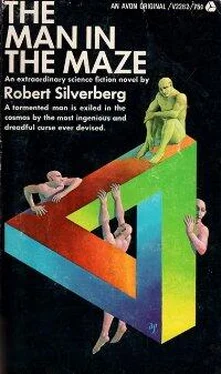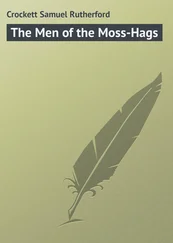Muller shrugged. “I’m not much of a companion. Maybe you ought to take all your sweet Christian impulses and go away. There’s no way you can help me, Ned. You can only hurt me by reminding me of all I can no longer have or know.” Stiffening, Muller looked past the tall young man toward the shadowy figures cavorting along the walls. He was hungry, and this was the hour to begin hunting for his dinner. He said brusquely, “Son, I think my patience is running out again. Time for you to leave.”
“All right. Can I come back tomorrow, though?”
“Maybe. Maybe.”
The boy smiled ingenuously. “Thanks for letting me talk to you, Dick. I’ll be back.”
By troublesome moonlight Rawlins made his way out of Zone A. The voice of the ship’s brain guided him back over the path he had taken inward, and now and then, in the safest spots, Boardman used the override. “You’ve made a good start,” Boardman said. “It’s a plus that he tolerated you at all. How do you feel?”
“Lousy, Charles.”
“Because of the close contact with him?”
“Because I’m doing something filthy.”
“Stop that, Ned. If I’m going to have to pump you full of moral reassurance every time you set out—”
“I’ll do my job,” said Rawlins, “but I don’t have to like it.” He edged over a spring-loaded stone block that was capable of hurling him from a precipice if he applied his weight the wrong way. A small toothy animal snickered at him as he crossed. On the far side, Rawlins prodded the wall in a yielding place and won admission to Zone B. He glanced at the lintel and saw the recessed slot of the visual pickup and smiled into it, just in case Muller was watching him withdraw.
He saw now why Muller had chosen to maroon himself here. Under similar circumstances he might have done the same thing. Or worse. Muller carried, thanks to the Hydrans, a deformity of the soul in an era when deformity was obsolete. It was an esthetic crime to lack a limb or an eye or a nose; these things were easily repaired, and one owed it to one’s fellow man to get a shape-up and obliterate troublesome imperfections. To inflict one’s flaws on society was clearly an antisocial act.
But no shape-up surgeon could do a cosmetic job on what Muller had. The only cure was separation from society. A weaker man would have chosen death: Muller had picked exile.
Rawlins still throbbed with the impact of that brief moment of direct contact. For an instant he had received from Muller a formless incoherent emanation of raw emotion, the inner self spilling out involuntarily and wordlessly. The flow of uncontrollable innerness was painful and depressing to receive.
It was not true telepathy that the Hydrans had given him. Muller could not “read” minds, nor could he communicate his thoughts to others. What came forth was this gush of self: a torrent of raw despair, a river of regrets and sorrows, all the sewage of a soul. He could not hold it back. For that eternal moment Rawlins had been bathed in it; the rest of the time he had merely picked up a vague and general sense of distress.
He could generate his own concretenesses out of that raw flow. Muller’s sorrows were not unique to himself; what he offered was nothing more than an awareness of the punishments the universe devises for its inhabitants. At that moment Rawlins had felt that he was tuned to every discord in creation: the missed chances, the failed loves, the hasty words, the unfair griefs, the hungers, the greeds, the lusts, the knife of envy, the acid of frustration, the fang of time, the death of small insects in winter, the tears of things. He had known aging, loss, impotence, fury, helplessness, loneliness, desolation, self-contempt, and madness. It was a silent shriek of cosmic anger.
Are we all like that? He wondered. Is the same broadcast coming from me, and from Boardman, and from my mother, and from the girl I used to love? Do we walk about like beacons fixed to a frequency we can’t receive? Thank God, then. That’s a song too painful to hear.
Boardman said, “Wake up, Ned. Stop brooding and watch out for trouble. You’re almost in Zone C now.”
“Charles, how did you feel the first time you came close to Muller?”
“We’ll discuss that later.”
“Did you feel as if you knew what human beings were all about for the first time?”
“I said we’ll discuss—”
“Let me say what I want to say, Charles. I’m not in any danger here. I just looked into a man’s soul, and I’m shaken by it. But— listen, Charles—he isn’t really like that. He’s a good man. That stuff he radiates, it’s just noise. It’s a kind of sludge that doesn’t tell you a real thing about Dick Muller. It’s noise we aren’t meant to hear, and the signal’s altogether different—like when you open an amplifier up to the stars, full blast, and you get that rasping of the spectrum, you know, and some of the most beautiful stars give you the most terrible noises, but that’s just an amplifier response, it has nothing to do with the quality of the star itself, it—it—”
“Ned?
“I’m sorry, Charles.”
“Get back to camp. We all agree that Dick Muller’s a fine human being. That’s why we need him. We need you, too, so shut your mouth and watch your step. Easy, now. Calm. Calm. Calm. What’s that animal on your left? Hurry along, Ned. But stay calm. That’s the way, son. Calm.”
When they met again the next morning it was easier for both of them. Rawlins, having slept well under the sleep wire, went to the heart of the maze and found Muller standing beside a tall flat-sided spike of dark metal at the edge of the great plaza.
“What do you make of this?” Muller asked conversationally as Rawlins approached. “There are eight of these, one at each corner. I’ve been watching them for years. They turn. Look here.” Muller pointed to one face of the pylon. Rawlins came close, and when he was ten meters away he picked up Muller’s emanation. Nevertheless, he forced himself to go closer. He had not been so close yesterday except in that one chilling moment when Muller had seized him and pulled him near.
“You see this?” Muller asked, tapping the spike.
“A mark.”
“It took me close to six months to cut it. I used a sliver from the crystalline outcropping set in that wall yonder. Every day for an hour or two I’d scrape away, until there was a visible mark in the metal. I’ve been watching that mark. In the course of one local year it turns all the way around. So the spikes are moving. You can’t see it, but they do. They’re some kind of calendars.”
“Do they—can you—have you ever—”
“You aren’t making sense, boy.”
“I’m sorry.” Rawlins backed away, trying hard to hide the impact of Muller’s nearness. He was flushed and shaken. At five meters the effect was not so agonizing, and he stayed there, making an effort, telling himself that he was developing a tolerance for it.
“You were saying?”
“Is this the only one you’ve been watching?”
“I’ve scratched a few of the others. I’m convinced that they all turn. I haven’t found the mechanism. Underneath this city, you know, there’s some kind of fantastic brain. It’s millions of years old, but it still works. Perhaps it’s some sort of liquid metal with cognition elements floating in it. It turns these pylons and runs the water supply and cleans the streets.”
“And operates the traps.”
“And operates the traps,” Muller said. “But I haven’t been able to find a sign of it. I’ve done some digging here and there, but I find only dirt below. Maybe you archaeologist bastards will locate the city’s brain. Eh? Any clues?”
Читать дальше












